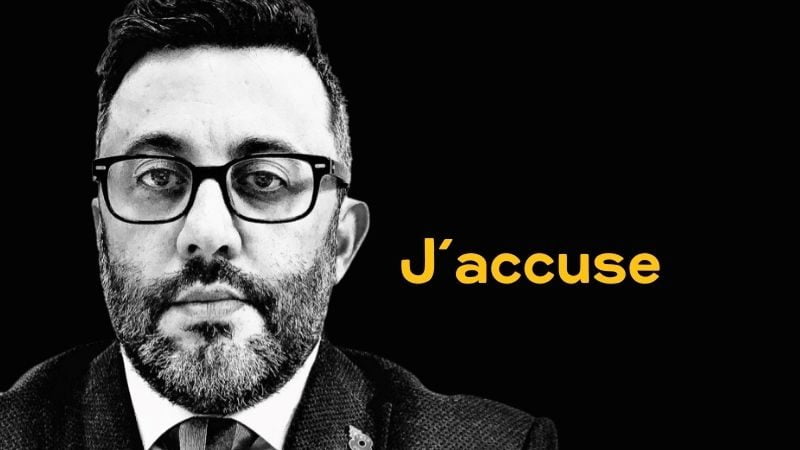Justice should be an important virtue in any society. To paraphrase the philosopher John Rawls and his idea of a just society, we are only comfortable living in a society when we are sure that it treats everyone justly. In the past week, Lady Justice was called into question several times.
We were regaled with a few dubious interpretations and assessments of what justice is about and it became evident after a while that our measures of justice are as diverse as they are creative. There is a positive aspect to these developments though as they force us to reflect on the value of a system that works – a system where the rule of law prevails because justice, fairness and equity are meted out as they should.
So, it all started when Prime Minister Robert Abela reacted to Malta’s greylisting by the FATF. Abela described this as “unjust” – basing his reasoning on the fact that the satisfactory findings by the Moneyval scrutiny should have led to a different FATF plenary outcome.
Abela’s sense of justice (or in this case injustice) is framed in terms of misguided spin and uninformed rhetoric. His appeal to any sense of justice was not based on a measure of real fairness or equity but rather on nationalistic rhetoric – the people of Malta had been hard done by the big bully nations.
Over the weekend we learnt that Labour MP Rosianne Cutajar hit out at the Standards Commissioner after the latter had concluded that she should be investigated for her property dealings with murder suspect Yorgen Fenech. Cutajar insisted that the Commissioner’s findings “did not do justice to truth”. There it is again, this special measure of justice. It is almost a constant with the members of this government that scrutiny by regulatory and supervisory authorities is only useful if it is ongoing.
The Standards Commissioner has been the target of quite a few attacks from the Labour benches. His power is limited to the drawing of reports that risk becoming inconsequential should their recommendations not be adopted by parliament. Justice in those parts is measured mostly in partisan terms with relative disdain to any form of coherent rule book – ethical or legal.
This is probably why Cutajar is so ready to pour scorn over whatever conclusions the Commissioner may have reached. Why worry if Glenn Bedingfield & Co and a toothless Speaker will surely find a way out to reinforce the levels of impunity enjoyed by the representatives?
In other news, the entertainment industry protested the continued lockdown on artistic events outside parliament this weekend after an earlier attempt had failed because the organisers had opted to ask whoever is in power for permission to demonstrate. It was only after their ire was fuelled by the goings-on in the footballing world that the artists finally took to the streets.
Again, we find a weird measure of fairness and justice. The issue does not seem to be whether the rules that are in place should be kept or tightened and applied across the board but rather the “unfairness” that the rules seem to be applied differently in the case of some (vote swelling) interest groups such as band clubs and football clubs.
Elsewhere, the Lands Authority is still without an internal audit chief. The internal unit scrutinises transactions over €100,000 and is a perfect example of how the perfect structures created on paper are constantly undermined in practice. The outgoing Audit Chief, Charlene Muscat, reported that she had been shut out of board meetings claiming this was a blow to good governance and transparency. That is the way of our world, justice on paper rarely emulated by justice in practice.
Finally, I cannot omit to mention the judgment in the case of the architects found responsible for the death of Miriam Pace. Mention was made of ‘vendettas’ and ‘retribution’, and justice should be about neither. Justice is about everybody being answerable to the laws that ensure a fully functioning society by guaranteeing we can live our lives safely.
The measure of justice is equality before the law and fair and application of the law. It is not up to our justices and magistrates to consider whether “revenge” is being sought, rather it is up to them to apply the full force of the law without favour.
A lesser-used Maltese word for justice is ħaqq. Our measure of justice might also be reflected in this curious term and our use of it. Mistħoqq, ħaqqu (deserved, he deserved it) are derivatives that are often used. As citizens observing matters political and legal, we often judge whether a promotion or a punishment was deserved. Often our measure of justice is personal and not universal.
While there is nothing wrong with personal assessments in such circumstances, it is important to understand that the rule of law should not operate by popular vote or emotions but by the clear application of the law.













Another excellently reasoned synopsis of why the FATF took the decision to grey list Malta.
The talk from the Government and its lackey marionettes is just that, vapid talk.
There continues to be no evidence of any intention however to walk the walk as the article points out, and as the Moneyval Rapporteur, Pieter Omtzigt so forcefully pointed out in his video statement on December 4 2020 ( available on YouTube) there has still not been a single successful prosecution since the Panama Papers started pointing the fingers at so many high profile people.
The only injustice is the way the honest Maltese citizens and the victims caught up in these huge scandals have to sit back and listen to the drivel spouted by those implicated knowing that there is no will within the corridors of power to deliver true justice.
Not allowing an Internal Auditor to a Board Meeting isn’t only a huge red flag… it’s a smoking gun.